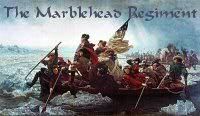Questions about John Roberts
Her newest column is entitled Read my lips: No new liberals. It starts off with:
In retrospect, I deeply apologize for all the nasty things I've said about the people responsible for putting David Souter on the Supreme Court. Compared to what we know about John Roberts, Souter was a dream nominee.Ann explains what we knew about David Souter before he was put on the Supreme Court, what we knew about Clarence Thomas, and what we don't know about John Roberts.
the principal evidence cited to prove Roberts' conservative bona fides: As a judge, he upheld the arrest of a girl for eating French fries on a subway even though he disagreed with the policy. Well, there's a hot-button issue! (And if he's so conservative, why didn't he call them "freedom fries"?)Some people have been hard on Ann for being somewhat opposed to John Roberts, but I think she is right to be cautious. After all, if David Souter sounded so good (read the column), then John Roberts, who has no papertrail or opinions to speak of, could be even worse once he's on the Court.
This seems to fit with this article from Yahoo News, entitled "Roberts Donated Help to Gay Rights Case."
It says:
Supreme Court nominee John G. Roberts Jr. worked behind the scenes for gay rights activists, and his legal expertise helped them persuade the Supreme Court to issue a landmark 1996 ruling protecting people from discrimination because of their sexual orientation.Regardless of the reasons why, the facts are that Roberts worked on a case that a majority of good Conservatives would not agree with. It doesn't matter if he was simply part of the law firm and everyone helped out. I don't want another Supreme Court Injustice who reads immoral things into the Constitution and makes up laws. The impact of this opening on the Supreme Court is too important to the future of this country. We can't have a unConservative, independent, flip-flopper on our hands.
Then a lawyer specializing in appellate work, the conservative Roberts helped represent the gay rights activists as part of his law firm's pro bono work. He did not write the legal briefs or argue the case before the high court, but he was instrumental in reviewing filings and preparing oral arguments, according to several lawyers intimately involved in the case.
Gay rights activists at the time described the court's 6-3 ruling as the movement's most important legal victory. The dissenting justices were those to whom Roberts is frequently likened for their conservative ideology: Chief Justice William H. Rehnquist, Antonin Scalia and Clarence Thomas.
Roberts' work on behalf of gay rights activists, whose cause is anathema to many conservatives, appears to illustrate his allegiance to the credo of the legal profession: to zealously represent the interests of the client, whoever it might be.
There is no other record of Roberts being involved in gay rights cases that would suggest his position on such issues. He has stressed, however, that a client's views are not necessarily shared by the lawyer who argues on his or her behalf.
 I Remember
I Remember
















































<< Home